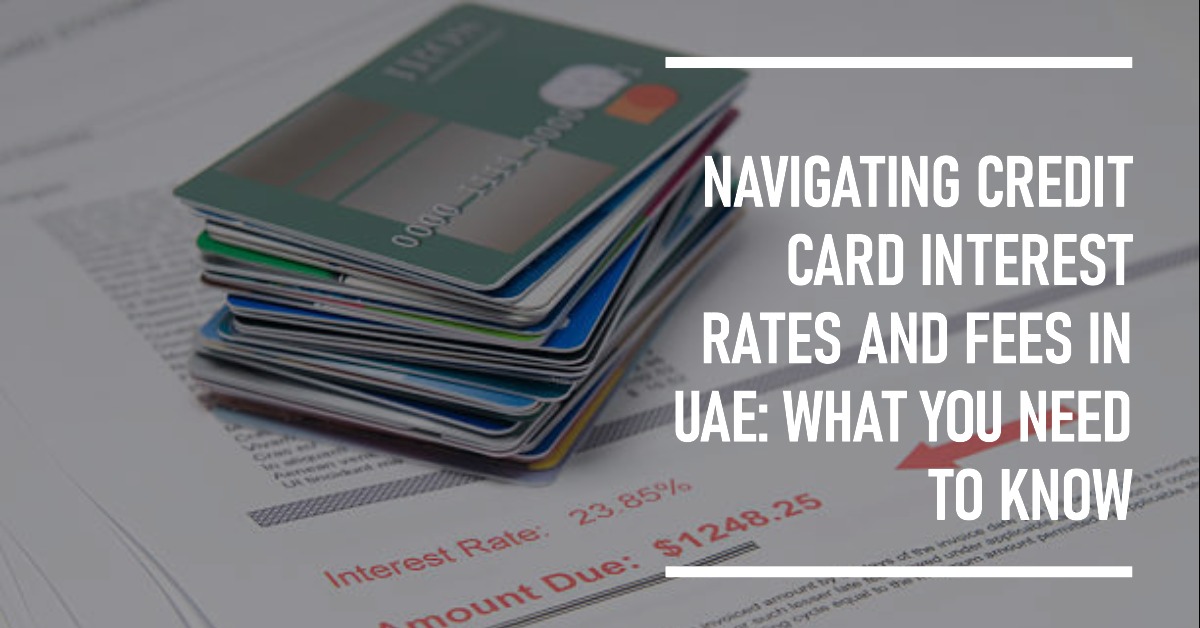In the bustling economic environment of the United Arab Emirates (UAE), understanding credit card interest rates and fees is crucial for financial savvy. This article delves into the intricacies of credit card usage in the UAE, focusing on the average interest rate, how it’s computed, and how to manage these rates effectively.
Understanding Credit Card Interest Rates in the UAE
When considering getting a credit card in the UAE, it’s really important to understand the interest rates, as they play a big part in your financial choices. These rates are generally higher compared to many other places. They usually vary between 2.5% to 3.5% per month. For example, if you look at the Citibank Citi Cash Back Credit Card, they charge an interest rate of 3.25% every month. Another card, the Emirates Islamic RTA Credit Card, has an even higher rate of 3.49% per month.
It’s wise to be aware of these rates because they affect how much you’ll pay back if you don’t clear your balance each month. Consider this when choosing a credit card, as it can significantly affect your expenses. Remember, a lower interest rate means less extra cost for you.
When is Interest Charged on Credit Cards?
Interest is charged under several circumstances:
- Failure to make payments: If no payment is made in a month, interest is charged on the total owed amount.
- Paying only the minimum amount: Interest is still applicable on the remaining balance.
- Cash advances: Interest is charged from the day of withdrawal.
- Carrying over unpaid balances: Interest applies to the balance carried over to the next billing cycle.
Computing Credit Card Interest Rates
Credit card interest in the UAE is calculated using the Monthly Percentage Rate (MPR) and the Annual Percentage Rate (APR). The MPR and APR can vary between banks and specific credit cards.
Impact of Credit Score on Interest Rates
A higher credit score can lead to lower interest rates, while a lower score might result in higher APRs. The credit card type also affects the APR, with reward cards often having higher rates.
Tips to Reduce Credit Card Interest Rates
- Balance transfer: Transfer your balance to a new card with a lower or 0% interest rate.
- Consolidation loan: Take a loan with a lower interest rate to pay off credit card debt.
- Negotiate with a credit card company: Sometimes, companies might lower your rate, especially if you have a good payment history.
FAQs
Do credit card interest rates change often?
- The bank sets credit card interest rates and can change with prior notice.
Why are credit card interest rates higher than other credit facilities?
- Credit cards offer immediate loans up to your credit limit, hence the higher rates.
Can you repay credit card dues in installments?
- Many credit card companies offer plans to split large purchases into smaller payments, but interest rates apply.
Navigating Fees and Charges
Apart from interest rates, credit cards come with various fees. Being aware of these can help you avoid unnecessary expenses. Here are some common fees associated with credit cards in the UAE:
- Annual fees: Some cards charge a yearly fee, varying depending on the card type and benefits.
- Late payment fees: Failing to pay your credit card bill on time can result in late payment charges.
- Over-the-limit fees: Exceeding your credit limit can incur additional fees.
- Foreign transaction fees: Using your card abroad might attract extra charges.
Choosing the Right Credit Card
Selecting a credit card that aligns with your financial habits and needs. Here are some factors to consider:
- Interest rates: Opt for cards with lower interest rates if you tend to carry a balance.
- Rewards and benefits: A rewards card might be more beneficial if you pay off your balance each month.
- Annual fees: Weigh the card’s benefits against its yearly fee to see if it’s worth it.
- Credit limit: Ensure the credit limit suits your spending habits and financial needs.
Building a Good Credit Score
A good credit score not only helps in getting lower interest rates but also in securing loans and other financial products. Here’s how you can build and maintain a good credit score:
- Timely payments: Always pay your bills on time.
- Credit utilization: Use less than 30% of your available credit limit.
- Regular monitoring: Keep an eye on your credit report and rectify any errors promptly.
- Diverse credit: A mix of different types of credit can positively impact your score.
Final Words
Understanding credit card interest rates and fees in the UAE is key to smart money management. It’s like learning a new game where knowing the rules helps you win. First, get to know how interest rates work. Consider interest as the cost of borrowing money on your credit card. Your credit score, which shows how reliable you are in paying back money, can affect these rates.
Also, be aware of different fees that come with credit cards, like charges for late payments. Choosing the right credit card is a big decision. It’s not just a spending tool but a financial responsibility. Always read and understand the terms and conditions. This way, you can use your credit card wisely and to your advantage.


